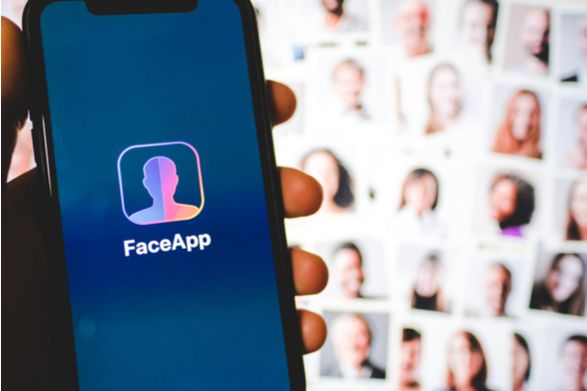Millennials have been called the “selfie-generation” and have made photo apps like Snapchat and Instagram popular due to their fun filters. Earlier this year the Snapchat gender-swaping filter went viral, and then faced backlash for offending transgender and non-binary people. The latest transforming viral filter comes from FaceApp. It features an artificial intelligence photo tool that ages the user decades into the elderly version of themselves. As these selfies start popping up across all social media, some are questioning the security of the FaceApp filter.
Forbes reports that within a short period of time FaceApp now owns over 150 million images of people’s faces. According to the FaceApp terms of service, once you join the viral trend and use their app for a selfie: “You grant FaceApp a perpetual, irrevocable, nonexclusive, royalty-free, worldwide, fully-paid, transferable sub-licensable license to use, reproduce, modify, adapt, publish, translate, create derivative works from, distribute, publicly perform and display your User Content.”
A selfie is not a great cybersecurity threat. However, PhoneArena, a website dedicated to all things smartphones, reports that the parent company owning all these selfies is a Russian based tech firm called Wireless Labs. FaceApp requires access to all photos and history on your phone–even the most unproblematic, open-book, person should be a little concerned with a Russian tech firm having that much data from your phone. Sen. Minority Leader, Chuck Schumer, even called for an FBI investigation to confirm the safety of the app.
The Atlantic argues that this privacy scare should not be blamed directly on FaceApp or Wireless Labs, instead they suggest personal responsibility should have dissuaded such pervasive use. “FaceApp is not just FaceApp’s fault. Data collection is the plumbing of the modern web, and FaceApp is but one of millions of pipes. FaceApp’s scale is what’s most dangerous about it. The repercussions go above and beyond even its exploding user base.”
This is not the first nor the last technology struggle we will face within pop culture. As AI becomes more easily accessible through apps, users will increasingly run into security issues in their daily lives. Now that the filter has started trending online, too many people have blindly downloaded the app in order to not miss this must-have selfie opportunity. There is not one single person to blame. The Atlantic continues, “Privacy, when framed as something a single individual consents to, obscures a bleak fact of life: You can’t always opt out of other people’s choices.”
Internet trends come and go by the day, and privacy is usually a second thought when participating in internet culture. We need to slow down and think about what we download to our phones on a whim and contemplate how much data is too much data to give away just to post a fun selfie.


